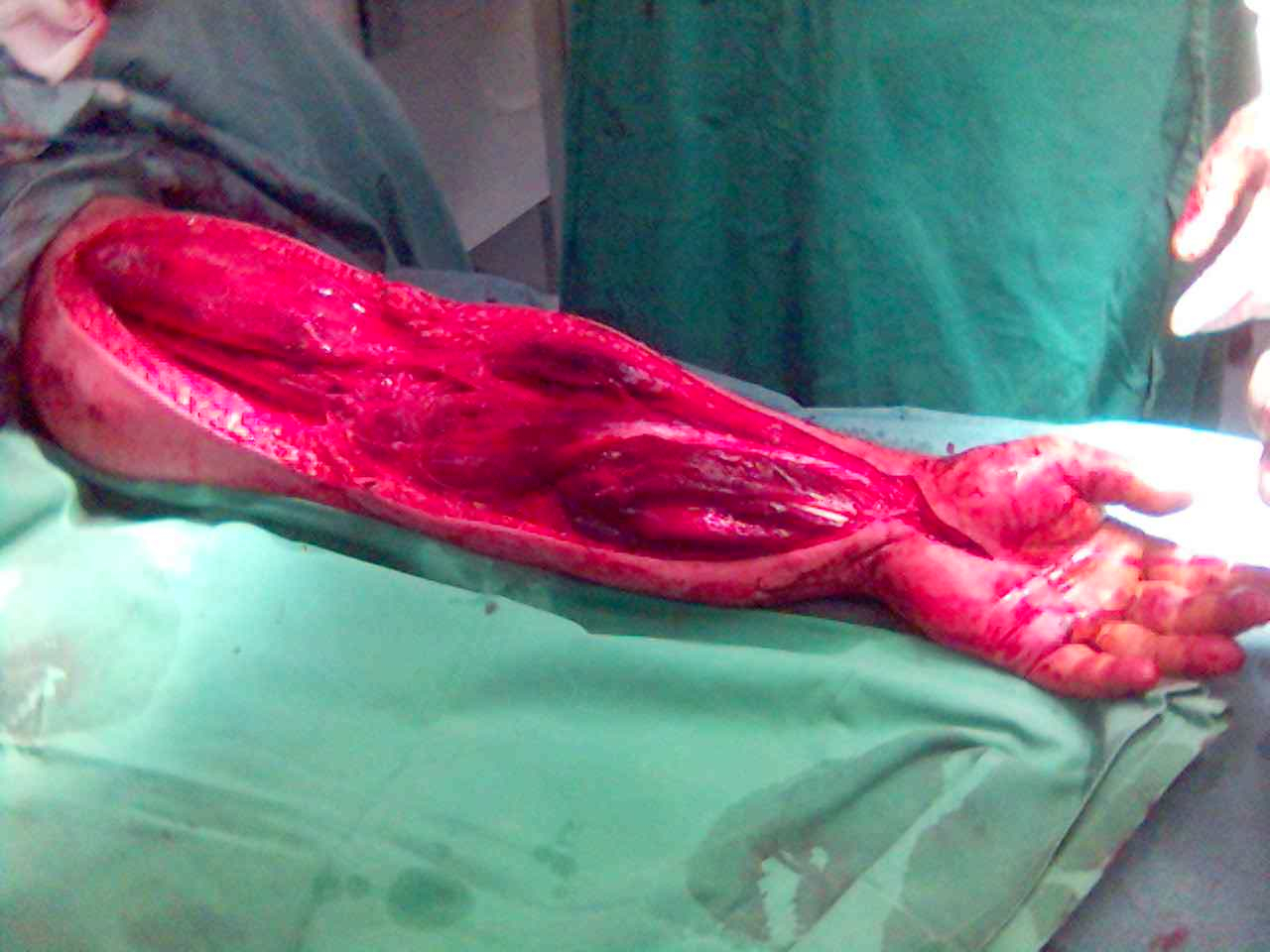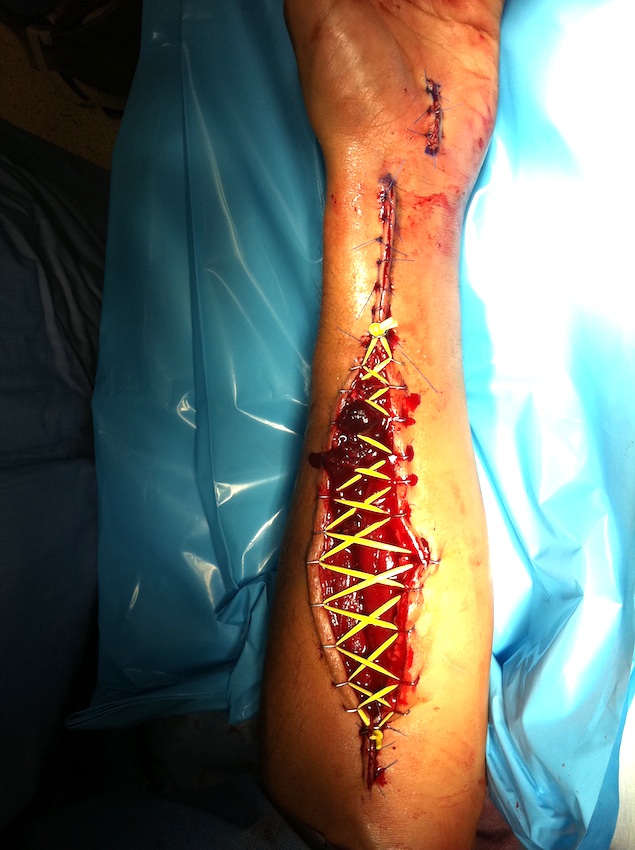

1. Antebrachial Compartment Syndrome
Aetiology
Supracondylar fracture of humerus
Both bone forearm fractures
Examination
Tense compartments
Pain +++
Passive extension of the digits or wrist increases pain
Paresthesias in median nerve distribution
Forearm Fasciotomy
AO foundation surgical technique
Decompression extending from elbow to wrist
Compartments (3)
- mobile wad
- volar
- dorsal
Incision
- medial arm
- across elbow
- continue as Henry approach into forearm
- can continue into palm as CTD incision
Release
- lacertus fibrosus (releases median nerve at elbow)
- fascia of forearm (releases superficial volar)
- deep fascial compartments (FCU / FDP / FPL)
- mobile wad
Remeasure dorsal compartment
- often decompression of volar compartment will reduce dorsal pressures
Consequences
Volkmann's ischemic contracture
- result of delayed diagnosis
- severe muscle fibrosis & neuropathy
- clawing of fingers
Muscles most commonly affected
- FDP
- FPL
Transfers
- BR to FPL
- ECRL to FDP
Compartment Syndrome of Hand
Aetiology
Iatrogenic injuries
- arterial line or infiltration of IV medications
Crushing trauma
IV drug abuse
High pressure injections
- i.e. paint guns
Clinically
Hand compartment syndromes lack abnormalities in sensory nerves
- no nerves are found within compartment
- non specific aching of the hand
Increased pain, loss of digital motion, continued swelling
- tight swollen hand in a intrinsic minus position
- MP extension and PIP flexion
- intrinsic tightness (increased PIPJ motion with MCPJ flexion v extension)
Pressure measurement
Should have a lower threshold than in leg compartments
- pressures greater than 15-20 mmHg is a relative indication for release
Compartments
10 separate osteofascial compartments
- dorsal interossei (4)
- palmar interossei (3)
- adductor pollicis (1)
- thenar and hypothenar (2)
Decompression
CTD
- release thenar / hypothenar / adductor pollicis
- 2 x dorsal incisions over MC 2 and 4
